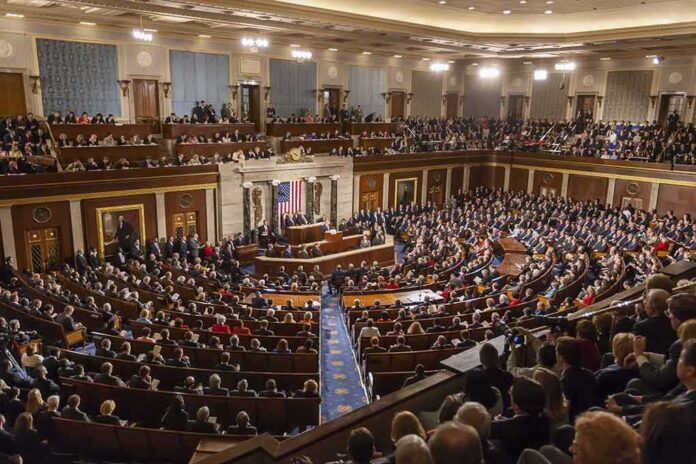
The Senate’s approval of the HALT Fentanyl Act marks a significant stride in combating fentanyl trafficking, bolstered by previous Trump administration backing.
Key Insights
- The Senate passed the HALT Fentanyl Act with an 84-16 vote, showing bipartisan support.
- The bill targets fentanyl analogues, assigning similar penalties as fentanyl-related offenses.
- Fentanyl-related substances are permanently classified as Schedule I under the Controlled Substances Act.
- All 16 opposing votes came from Democrats, concerned about potential harsher sentences.
- The bill is supported by law enforcement groups like the National Fraternal Order of Police.
Senate Approval and Support Across Party Lines
The HALT Fentanyl Act passed the Senate with a decisive 84-16 vote, illustrating bipartisan backing despite some apprehensions about sentencing severity from a segment of Democrats. The bill, endorsed by law enforcement groups such as the National Fraternal Order of Police, aims to address the pressing fentanyl crisis responsible for numerous American deaths.
This legislation, crafted with input from Senators Bill Cassidy, Chuck Grassley, and Martin Heinrich, targets traffickers of fentanyl and its analogues by aligning the penalties for fentanyl-related offenses with those for fentanyl itself. The mandatory minimum sentences associated with these offenses will reflect existing penalties for fentanyl crimes, crucial in combating the spread of analogous substances.
Addressing Trafficking Loopholes
The legislation intends to close legal loopholes exploited by traffickers by ensuring that fentanyl analogues are treated as firmly as fentanyl itself under the law. Senator Bill Cassidy explained, “What this bill does — it says, ‘OK, it’s illegal to bring in fentanyl.’ But it recognizes that some of those attempting to bring in fentanyl will try and circumvent the law by changing the fentanyl just enough so that it becomes what is called an analog.”
The intent aligns with reducing bureaucratic hurdles that could impede law enforcement’s ability to address and prosecute those dealing in these hazardous substances. With fentanyl-related substances permanently classified as Schedule I under the Controlled Substances Act, the move brings accountability and clarity to international and domestic drug control efforts.
Next Steps and Continued Efforts
The act now advances to the House, which previously passed similar legislation, indicating potential swift progression toward legalization. The Trump administration, advocating for comprehensive measures against fentanyl trafficking, supports this legislation. Additionally, Senator James Lankford emphasized the significance of further interventions, specifically at U.S. borders, to enhance the ongoing struggle against the drug epidemic.
The year’s record numbers of over 107,000 overdose deaths, 70% related to fentanyl, attest to the urgency of such legislative interventions. HALT Fentanyl Act signifies a crucial legislative move forward in this ongoing battle, aiming to safeguard American lives and bolster enforcement capabilities against the deadly fentanyl threat.
Sources
1. Senate Overwhelmingly Passes Fentanyl Trafficking Bill: ‘Critical Step Toward Ending The Crisis’































